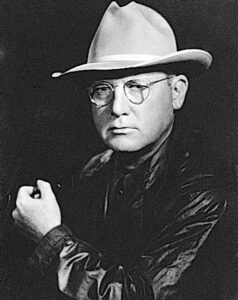By PJ Parrish
I think we’re stepping back in time with today’s First Pager. Back to an era when men were right gees, women were dames, a gun was a gat, but cigar was always just a cigar. And the view of the world comes through the slats of Venetian blinds and a swirl of smoke. But whose view is it?
Fatal Infraction
Chapter 1 — Offensive Planning
THE BOSS’S OPEN HAND slammed against his desktop with an ear-splitting smack. Every ornament, pen, and even the desk phone jump and then rattled back into place. “Damn it all! I didn’t want it to come to this!”
The huge man standing on the other side of the desk remained unfazed. His pectoral muscles stretched at the fabric of his black t-shirt, thick forearms crossed across his chest, biceps bulging above the short sleeves. Maintaining a placid expression required more self-control than most of his duties, which tended toward knocking heads together. A protruding vein, just visible above his left ear throbbed with increasing frequency. He hoped the boss would not notice. Being cool under pressure was his identity.
The early evening sunlight filtering in through a gap in the Venetian blinds. A recently smoked cigar lingered in the air.
“We knew he was a wild card, boss.” Not a quiver from the big man’s arms as he spoke. His voice was even; detached.
“Yeah, I know. But I still feel like we could have handled it better.” He sighed as he spun in his leather chair and reached for a cut-glass tumbler sitting on a polished credenza next to a crystal decanter. He poured himself two fingers of The McCallan 12. His companion stood stoically as he savored a sip, then turned back around. “You don’t think there are any other options?”
The big man shrugged, “That’s not my call, sir.”
“It’s really a shame. He had potential. He could have made us a lot of money.”
“That’s why you picked him. But, like you said, we can’t tolerate his actions.”
The boss took a long draught, then set the glass down with a clink. “I know. The time is right. You take care of it.”
“I will.”
The man behind the desk leaned forward and reached for his telephone handset as the big man left. He mumbled to himself, “It’s a damned shame.”
___________________________
I’m just guessing here because the scene-setting is bare bones, but I think we’re in the era of the pebbled glass door. The tone of this opening suggests the bygone era of pulp novels — Venetian blinds, smoke, whiskey, a desk phone rather than iPhone. The tone also comes from the clipped macho dialogue, the physical descriptions (bulging biceps, throbbing veins). If I’m wrong, then I think the writer has a problem going in. We can’t really tell where we are in time or place. More on than in a moment.
But the main problem here is one of point of view. There isn’t one. Sure, you can make a case for omniscient but it’s not consistent. And as we’ve said here often, omniscient POV just doesn’t cut it in today’s crime fiction where readers are looking for intimacy and connection with characters.
First off, the set-up itself is interesting. Two mugs are talking about a deal that has apparently gone off the rails because somebody screwed up. Someone off-camera is in trouble. Trouble is good. But because of the point of view problem, we don’t really care. Not caring is bad.
We have a classic case of head-hopping here. It feels like we are in The Big Man’s POV because we get some thoughts and details filtered through his consciousness. But the POV is not solidly grounded because we have omniscient intrusion with details like a throbbing vein in his head, stretching pec muscles (which the Big Man cannot see). Then, in the last graph, we are yanked out of Big Man’s POV with this:
The man behind the desk leaned forward and reached for his telephone handset as the big man left. He mumbled to himself, “It’s a damned shame.”
Whose head are we in now? Marginally, The Boss’s. This just doesn’t work.
Establishing empathy, sympathy, or at least INTEREST IN THE ACTION is essential to any opening. Because we are not grounded in any character’s POV, we can’t bond. Because the set-up is so bare bones, we can’t care what happens next. This feeling is intensified by the writer not giving us any names. It’s coy, in my opinion, and serves no real purpose.
Whose story is this? That’s the big question here.
Now, here’s a caveat: I could be wrong, but I don’t think the protagonist of this story is on stage yet. I have a feeling the writer is using the device of showing us the danger or villain before we meet the hero. The fixer Big Man (bad guy) is sent on a mission to track down and deal with the protagonist. Let’s call the protag Jack Evans. This structure could work. Given more details in this set-up, we might begin to wonder about Jack. All we are told is he did something wrong and he’s a “wild card.” Maybe we need to start worrying about Jack. We need a reason to turn the page.
I think this could be a good opening if the writer dropped in some more details. Big Man needs a name because I suspect he’s going to have more scenes and POVs and it’s going to get really tedious to keep him nameless. The man he will be hunting down needs a name here. What kind of business is this? Why withhold that info? At least give us a hint of that and what got screwed up. Also, WHO screwed up? The Boss at one point says, “I still feel like we could have handled it better.” Yet Big Man is sent to go after Jack the wild card.
The dialogue is not working hard enough. The writer needs to pack more information into it. Let me give you an example of how that could work.
“We knew he was a wild card, boss.”
“Yeah, ex-cops always are.” He sighed and spun around in his chair to pick up the decanter on his credenza. He poured out two fingers of The McCallan 12 but didn’t take a drink. “Why do you think Jack turned on us?” he asked.
The Big Man didn’t answer. He knew Jack’s kid was really sick with leukemia and that Jack was desperate to get him to that big hospital up in Rochester. He needed money bad. Bad enough, maybe, to even cross The Boss. Note drops of backstory that tell us something about Jack and make us care. Note too that by not telling The Boss about this we are learning something about Big Man as well.
“I don’t know why he did it,” Big Man said.
The Boss swung back toward him. “Jack Evans had potential. Could’ve made us a lot of money. Damn shame.” He finally took a drink of the whiskey then set the tumbler down. “You think there are any options?” he asked.
The question sounded almost like a plea. The Big Man remembered that The Boss had taken to calling Jack Evans “son.” More backstory nugget that deepens the relationship and makes us wonder what’s the dynamic here.
“That’s not my call, sir.” Big Man said.
The Boss shook his head slowly. “I’ve put up with enough. It’s time,” he said quietly. “Take care of it.”
Okay, I’m running long. Here’s a quick line edit to cover some other things.
FATAL INFRACTION I like the title!
Chapter 1 — Offensive Planning
The Boss’s open hand slammed against his desktop with an ear-splitting smack. Cleaner: The Boss slammed his hand down on the desktop. You get rid of the ugly ss possessive and it’s active and not passive. Don’t need ear-splitting smack because it’s not in anyone’s POV. Every ornament, pen, and even the desk phone jump and then rattled back into place. “Damn it all! I didn’t want it to come to this!”
The huge man standing on the other side of the desk remained unfazed. His pectoral muscles stretched at the fabric of his black t-shirt, thick forearms crossed across his chest, biceps bulging above the short sleeves. Omniscient POV…Big Man can’t describe himself. Maintaining a placid expression required more self-control than most of his duties, which tended toward knocking heads together. A protruding vein, just visible above his left ear throbbed with increasing frequency. Ditto POV but easily fixed with “He could feel a vein throbbing in his temple. He hoped the boss didn’t notice it. He hoped the boss would not notice. Being cool under pressure was his identity.
The early evening sunlight filtering in through a gap in the Venetian blinds. A recently smoked cigar lingered in the air. A nice description here but can you filter it thru Big Man’s consciousness? He squinted against the sunlight slanting through the Venetian blinds and resisted an urge to swat away the cigar smoke lingering in the air. SMOKE lingers in the air, not the cigar itself btw.
“We knew he was a wild card, boss.” Not a quiver from the big man’s arms as he spoke. His voice was even; detached. It was a struggle to keep his voice even and detached because he knew what was coming and he didn’t know if he could do it. Again, drop in some hints here of intrigue. These men are flesh and blood. Show us some emotion.
“Yeah, I know. But I still feel like we could have handled it better.” He sighed as he spun in his leather chair and reached for a cut-glass tumbler sitting on a polished credenza next to a crystal decanter. He poured himself two fingers of The McCallan 12. His companion stood stoically as he savored a sip, then turned back around. Again, he can’t tell “his companion” (odd phrase) is stoic because his back is turned. And Big Man would not think to himself “I’m standing here stoically. “You don’t think there are any other options?”
The big man shrugged, “That’s not my call, sir.”
“It’s really a shame. He had potential. He could have made us a lot of money.”
“That’s why you picked him. But, like you said, we can’t tolerate his actions.”
The boss took a long draught, then set the glass down with a clink. “I know. The time is right. You take care of it.”
“I will.”
The man behind the desk leaned forward and reached for his telephone handset as the big man left. He mumbled to himself, “It’s a damned shame.” Final POV issue here. You’ve switched to the Boss’s POV in mid-scene. I would end this scene with Big Man. He’s the bridge to what comes next — the hunt and chase to find Jack Evans. So you should end with him leaving and doing something outside. Which might give you the chance to tell us where we are. Also, the sentence construction itself is bulky — He leans forward, reaches for his phone AS the other guy leaves. Big Man leaves. Then you can move on. But again, I would stay with Big Man — he’s potentially more interesting at this point because he’s OFF TO DO SOMETHING.
Remember: The last line of a chapter is as important as the first line because it is the bridge to the next chapter. Don’t give your exit line to someone who doesn’t matter to what comes next.
So, brave writer. My main two suggestions is that you chose a point of view and run with it. Make your men come alive. And although I recognize you’re going for a spare neo-noir style here, we still need a little more meat. Don’t be afraid to slow down and give us a dollop of backstory and more description. We need a sense of your setting here beyond the old tropes of a smoke-filled office (that’s been over-done). Maybe take the scene outside via Big Man and let him — and your scene — breathe a little more.
That’s it for today. Thanks to our writer for submitting their work. And I hope you find this and other comments helpful.


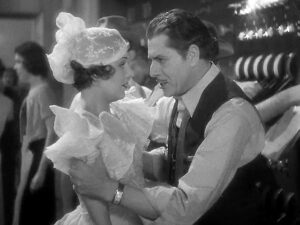
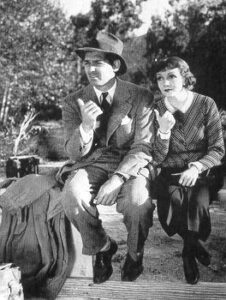




 SOP (Standard Operating Procedure) teaches us to set a completed draft aside for a while. It’s easy to prematurely submit a manuscript to a publisher, or to push publish too soon for Indies. And sadly, these books languish on Amazon with poor reviews and one-star ratings.
SOP (Standard Operating Procedure) teaches us to set a completed draft aside for a while. It’s easy to prematurely submit a manuscript to a publisher, or to push publish too soon for Indies. And sadly, these books languish on Amazon with poor reviews and one-star ratings.
 I don’t worry about that. I’ve learned to do my own thing, and it’s slowly paid off. I look at blogging as a long-term venture—not some sort of a get-rich-quick scheme. (Spoiler Alert — nothing quick about getting rich with writing, and even Wild Bill Shakespeare made little money during his world-changing career.)
I don’t worry about that. I’ve learned to do my own thing, and it’s slowly paid off. I look at blogging as a long-term venture—not some sort of a get-rich-quick scheme. (Spoiler Alert — nothing quick about getting rich with writing, and even Wild Bill Shakespeare made little money during his world-changing career.) The blog–trogs of yesterday and the top-bloggers of today say, “Stick to your niche.” I didn’t know what a niche was when I started blogging. Till then, I thought a niche was my sister’s daughter.
The blog–trogs of yesterday and the top-bloggers of today say, “Stick to your niche.” I didn’t know what a niche was when I started blogging. Till then, I thought a niche was my sister’s daughter.
 Garry Rodgers is a retired homicide detective with a second career as a coroner responsible for investigating unexpected and unexplained human deaths. Now, Garry has reinvented himself as a crime writer and indie publisher.
Garry Rodgers is a retired homicide detective with a second career as a coroner responsible for investigating unexpected and unexplained human deaths. Now, Garry has reinvented himself as a crime writer and indie publisher. I know this topic was mentioned recently, and apologies for not being able to find the post to credit the author. Perhaps it came up in the comments. No matter the source, I thought this craft topic worth another look, especially after a recent read.
I know this topic was mentioned recently, and apologies for not being able to find the post to credit the author. Perhaps it came up in the comments. No matter the source, I thought this craft topic worth another look, especially after a recent read.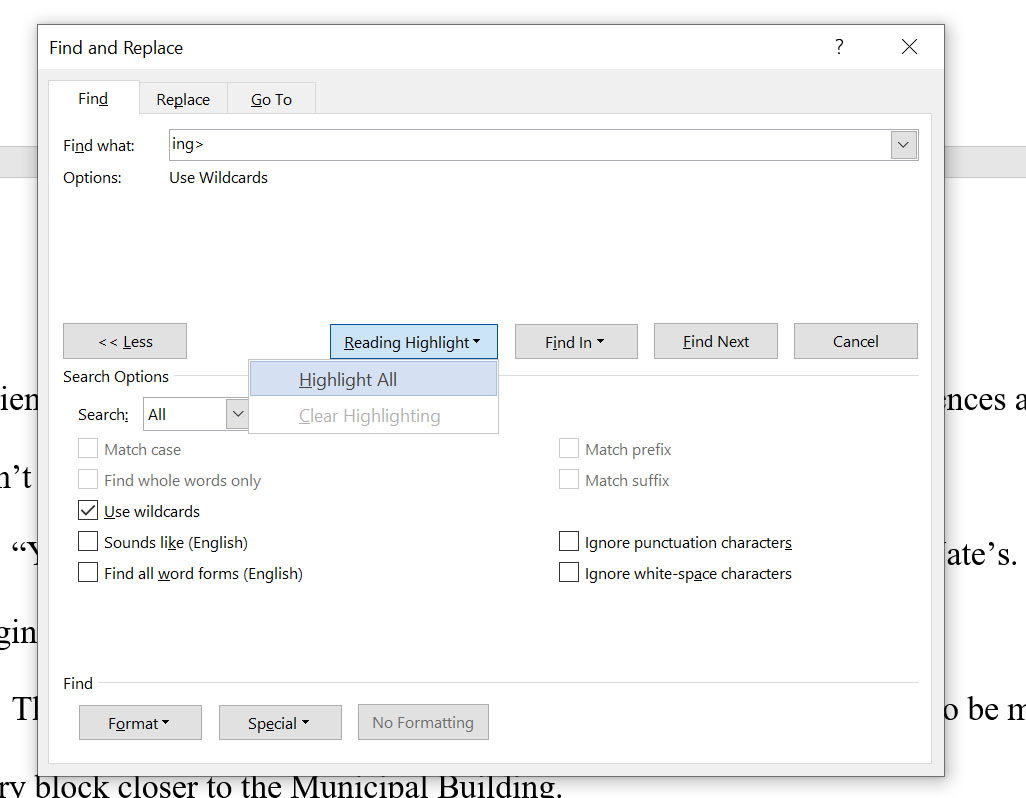
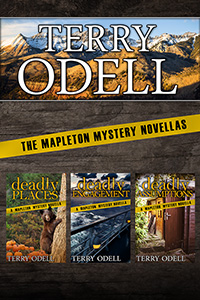











 P.J. Parrish (Kris Montee):
P.J. Parrish (Kris Montee): 
